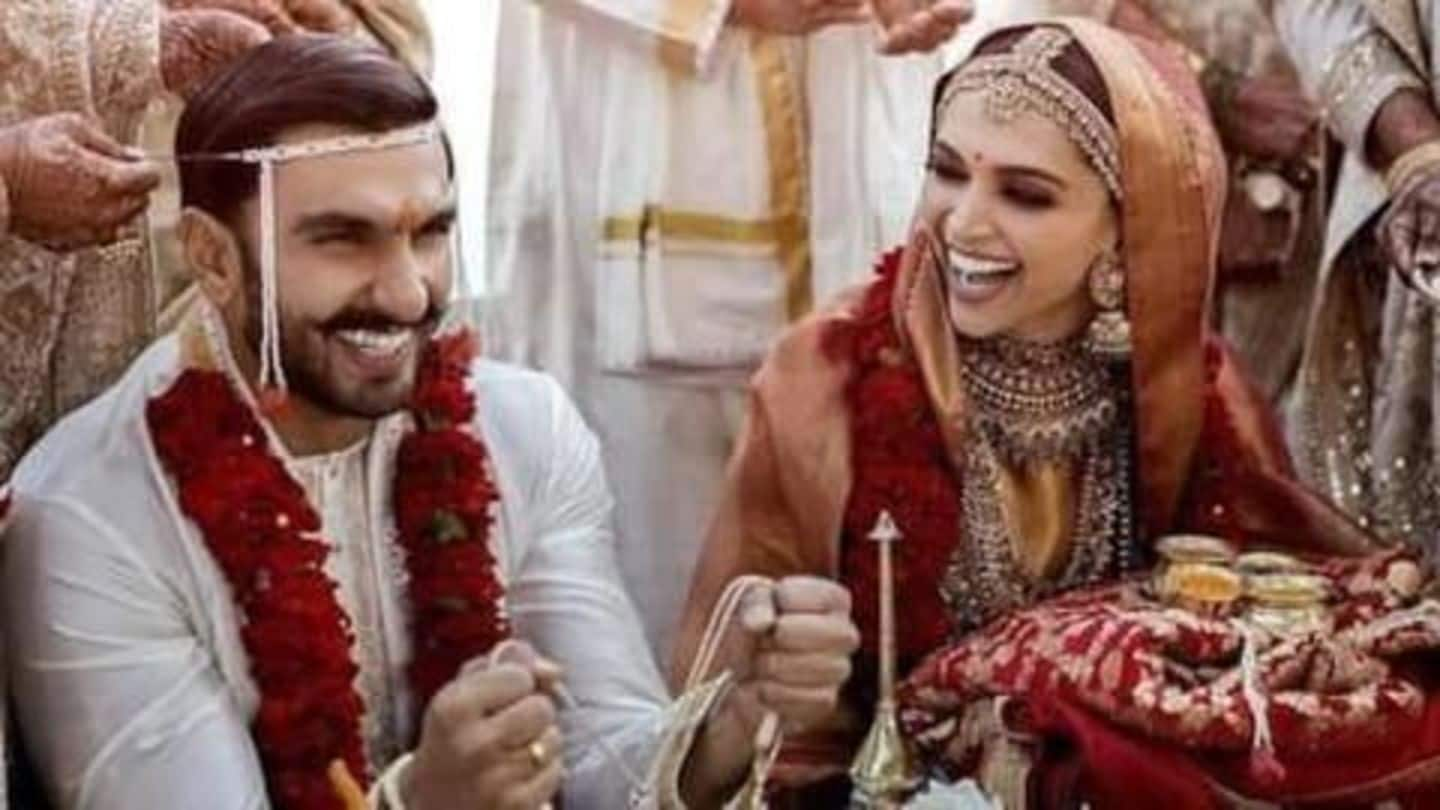
What's wrong with the nation's obsession about the DeepVeer wedding?
What's the story
Since Ranveer Singh and Deepika Padukone tied the knot on November 14, social media, news media, and much of mass media have been obsessed with their 'dreamy' picture-perfect wedding. Yet, at the risk of sounding unpopular, it needs to be stated that such obsession is not harmless fun, but in fact, demonstrates our degradation as a polity. Before you stop reading this, spare a thought.
Origins
Celebrity culture drowns out other, far more important things
Celebrity culture, the way we know it today, is not a timeless feature of society, but rather a recent phenomenon which spread its roots from early 1900s, driven by advertisers, marketers, and the mass media. As advertisers, marketers, and the mass media, over the years, found better ways to advertise, market and propagate, celebrity culture gained a stranglehold on society, deflecting public attention from issues of far greater import.
Function
Celebrity culture was fuelled by the advancement of corporate interests
This push towards promoting celebrity culture served a larger function - that of the advancement of capitalism. As corporations became more impersonal, and people became more alienated, larger-than-life figures became the face of the corporate machinery, serving as a bridge between un-relatable, drab corporate entities and the products we actually use. Think about it - when you think of L'Oreal or Adidas, you don't think about office blocks and spreadsheets. Rather, you imagine Deepika Padukone or Sachin Tendulkar using their products.
Inescapability
Celebrities have become inescapable in today's world
This concerted push by corporates to use public figures to advertise and make their products relatable, made these public figures much larger-than-life than they would otherwise have been - Virat Kohli or Shah Rukh Khan aren't restricted to a cricket match or a film. Rather, they're all around us - on billboards, on television, on radio, on social media.
Social media
How social media augmented the extant celebrity culture
While this celebrity culture had started growing since the success of mass media, it received a massive boost with the advent of the internet and social media. Celebrities were already inhabiting our lives through images on billboards and television. Suddenly, with the advent of Facebook and Twitter, celebrities, by virtue of their social media profiles, became as accessible as your neighbor.
Accessibility
Accessibility to celebrities further compounded their omnipresence
Unlike the days when celebrity tabloids reported gossip, it now became possible to follow every thought, every action of celebrities. It became possible to engage with them. Social media not only allowed common users to interact with celebrities, it made such interaction as commonplace as interaction with friends and family on social media. The result? Aspirations and cultural values started being shaped by the omnipresent celebrity culture, in a terribly undesirable way.
Values
Fame and popularity replaced more required social values
Indeed, data demonstrates the same. A study published in the journal Cyberpsychology, revealed that dominant values in popular TV shows in America saw a major shift between 1997 and 2007. In 1997, the dominant values expressed in shows popular among nine to 11-year-olds were community feeling, followed by benevolence. Fame was 15th out of 16 values. In 2007, when celebrity-fuelled shows like Miley Cyrus' Hannah Montana gained traction, fame became the dominant social value, followed by achievement, image, popularity and financial success. Community feeling and benevolence dropped to 11th and 12th, respectively.
Political life
Ardent celebrity followers are the least engaged in politics
Another study, published in the International Journal of Cultural Studies (IJCS), found that people who follow celebrity gossip the most, are the least engaged in politics, the least likely to protest, and the least likely to vote. The same study also found that ardent celebrity followers were three times less likely than traditional news followers to be involved in local organizations.
Eclipsing
How the celebrity culture is drowning out voices that matter
Apart from precipitating a shift in cultural values and creating and sustaining a class of uninterested citizenry, the celebrity culture also eclipsed the voices of experts from various fields. According to data compiled by MIT, actors in the US during 1900-1910 received 17% of the cultural attention given to famous people - slightly less than natural scientists and economists combined. During 1950-2010, actors in the US were enjoying almost 50% of such cultural attention, while natural and social scientists collectively received less than 4%.
India
Data for India too shows disturbing trends
Data for India, too, shows similar patterns. During 1900-1950, politicians received 33.33% of cultural importance given to famous people, while natural scientists, computer scientists, and economists collectively received around 10% of such attention. Social activists received 7.14% of attention, while the entire art industry, including actors, received around 26% of such attention. However, between 1950-2010, actors alone received almost 60% of cultural attention, while sports personalities received close to 10%. Politicians received around 5.5%, and scientists and activists were barely seen.
Society
Where we are headed to is not a pleasant place
Active political engagement by informed citizens is the only way to improve socio-economic conditions in a democratic polity, and this is a fact that needs no reiteration. Yet, as data shows, we are increasingly headed towards a society where citizens, globally, are becoming passive observers and mindless consumers of spectacles and commodities that largely have no significant bearing on individual or collective lives of people and communities at large.
To conclude
Our misplaced priorities are striking, yet no one notices
When, on November 16, social media became flooded with Deepika and Ranveer's wedding photos, a few thousand starving children died across the world, a few hundred species perished due to global warming, a few dozen manual scavengers died cleaning human excreta, and some hundreds of women got raped. For all the buzz about the Deepika-Ranveer wedding, all social media had to offer about these issues was silence.